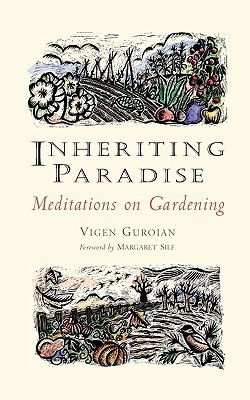|
|||
|---|---|---|---|
| This weekly bulletin insert complements the curriculum published by the Department of Christian Education of the Orthodox Church in America. This and many other Christian Education resources are available at http://dce.oca.org. | |||

Many New Testament verses remind us how deeply God involves Himself in the world He made. One such passage is Romans 1:18-27. Here Saint Paul is accusing the Gentiles of obstinately refusing to recognize the obvious signs of God in the world. He writes, "Ever since the creation of the world His eternal power and divine nature, invisible though they are, have been understood and seen through the things He has made." Another is Matthew 5: 42-48. These are Jesus Christ's words exhorting us to love our enemies and pray for those who mistreat us, so that we can truly be children of God. Christ says, "...for He makes His sun rise on the evil and on the good, and sends rain on the righteous and on the unrighteous." The good things of the earth are for every person, not just the worthy. Vigen Guroian's book "Inheriting Paradise" is subtitled "Meditations on Gardening" for good reason. As an avid gardener—the kind who harvests and consumes what the soil produces and is willing to plant, hoe and weed till the sweat pours down his aching back—Guroian sees the garden as a place where God's grace is offered to us. The book takes the reader through the liturgical seasons of the year and relates them to the seasons of a garden. So, for example, Guroian likens the weeding and preparation of the soil each spring, in anticipation of planting, to the Lenten work of weeding and preparing our souls to receive the Resurrected Christ. But it requires patience. He quotes the Anglican writer and gardener Evelyn Underhill: "The idea that a good vigorous campaign with a pitch fork is the best way of extirpating tiresome weeds from a herbaceous border is the one we most have to unlearn...in our hurry we've broken weeds and left the bottom half of their stems in the ground to start vigorous life again." Similarly, Guroian writes, we need humble patience as we work to uproot sins from our souls. "A quick pull on the root, however, will not do the trick, nor will an aggressive chop of the hoe...The Christian gardener patiently picks sin from the soul's soil and cultivates it with care and attention to the tender new growth of faith." Vigen Guroian is dismayed at some modern ecologists' views of Christianity. He quotes Jim Nollman, who asserts that "neither Judaism nor Christianity teaches us that nature is alive and and capable of interceding in our lives in a positive, spiritually enhancing manner." Guroian counters this extraordinarily ignorant statement with words from Saint Ephrem's "Hymns on Paradise" and verses from the Psalms. Then he writes of Christians' special responsibility to preserve and honor Earth's life: "If we Christians truly treasure the hope that one day we, like Adam and the penitent thief, will walk alongside the One who caused even the dead wood of the cross to blossom with flowers, then we must also imitate the Master's art and make the desolate earth grow green." |
|||
